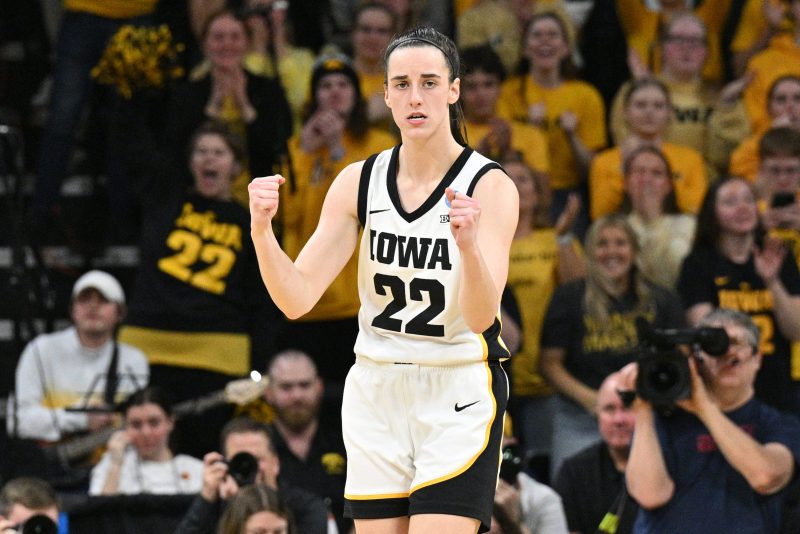ALBANY, N.Y. — In all fairness, Caitlin Clark is not the only Iowa player coach Lisa Bluder has had to tee up during practice.
“I’ve gotten a technical, as well,” Kate Martin said Friday. “So she’s not alone.”
No, but the way Clark is wired — she’s been described as competitive, fiery, even a whiner — has become the subject of endless fascination as she’s rewritten college basketball’s record books and helped turn perceptions of the women’s game on their head. After the close call against West Virginia in the second round Monday night, there were suggestions even her father was telling her to calm down.
Which wasn’t the case, Clark clarified.
“I was never talking to my dad. I don’t know why people thought that,” she said Friday.
“I know people are always watching. I know eyeballs are always on me. That is kind of what happens when you are in the spotlight. And it’s not anything you shy away from,” Clark continued. “I’m competitive. I’m fiery. That’s how it is.”
And it’s not unique.
Athletes, especially the very best ones, are competitive to the Nth degree. Have you not ever seen LeBron James arguing for a call or screaming at a teammate? Did you miss Tom Brady and Novak Djokovic taking out their frustrations on inanimate objects?
Heck, Netflix did a 10-part documentary that was essentially an examination of what made Michael Jordan tick.
The best athletes have an insatiable desire to win that the rest of us will never fully comprehend. It’s what keeps them practicing while the rest of us are content to sit on the couch and eat ice cream. It’s what drives them to get the tiniest bit better while the rest of us are OK with good enough.
It’s what sets the Jordans and the LeBrons and the Bradys apart, and Clark is in that category. She knows that — and so do the people around her.
“You get into a competitive little tiff or whatever, and then in the locker room you’re just fun and loving right away again. We can have that balance,” Martin said. “It doesn’t really matter what happens out on the court.”
The increasing interest in women’s sports is appreciated and long overdue. But there are some who still seem shocked when female athletes act like, well, athletes. The pearl clutching over Clark’s on-court emotions, or Angel Reese’s taunting during last year’s national title game, is both silly and insulting.
You cannot expect female athletes to deliver the same excitement as their male counterparts and not have the same emotions. You cannot expect female athletes to compete at the highest level and also be diminutive wallflowers who don’t express themselves.
Clark, like all the best athletes, has an internal combustion engine that runs hotter than most. It’s also why she’s been as successful as she is.
“It’s being able to channel that and use it in the best way,” Clark said. “There’s always young girls with eyeballs on you, so you always want to always be on your best behavior, but also play with that competitive fire and passion that you always had that has brought our team so much success. I think that’s exactly what we do.”
Clark and her coaches have acknowledged it’s taken time to get there. That she’s had to come to understand that not everyone can do what she does. When those technicals in practice were brought up, Clark said, almost under her breath, “That hasn’t happened in a while.”
But there is a difference between being a competitor and being a jerk, and some have seen Clark being one and assumed she must then be the other, too.
“She is the one that’s cracking the jokes, she’s the one that keeps the locker room happy, fun,” Bluder said. “You don’t get to see the goofy Caitlin that we get to see and that we love.”
Just as it was for Jordan, Brady, James and every other top athlete since the beginning of time, Caitlin Clark’s competitiveness is not a character flaw. It’s her super power.
Follow USA TODAY Sports columnist Nancy Armour on social media @nrarmour.
